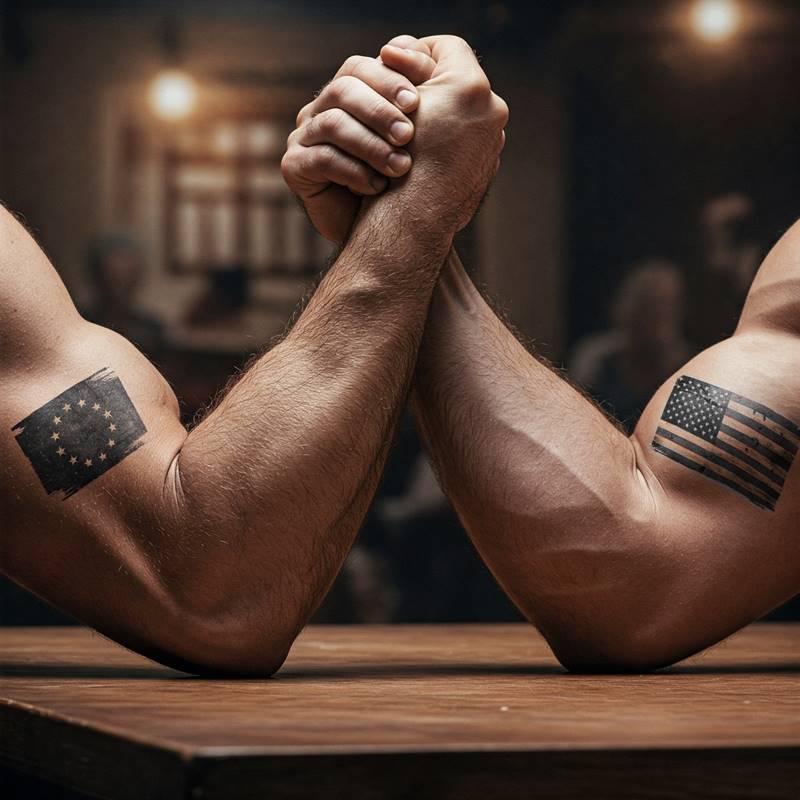If Trump imposes wine tariffs, how will it affect the EU?
What can European wineries do to avoid the tariffs?
2025-03-14

The European wine industry is on high alert after President Donald Trump recently threatened to impose tariffs of up to 200% on wines, champagne, and other alcoholic beverages imported from the European Union. Trump's announcement, made public on March 13, 2025, is a response to the 50% tariff previously imposed by the EU on American whiskey.
Trump's proposed tariff could have severe consequences for European wineries currently exporting to the U.S., as America is their largest export market, especially important for countries like France, Italy, and Spain. With European wine exports to the U.S. worth over $4.9 billion annually and champagne accounting for another $1.7 billion, the American market is vital for the profitability and sustainability of many European businesses.
Introducing a 200% tariff would essentially triple the retail price of European wines for American consumers. Such a steep price increase could significantly weaken the market position of European wines, benefiting competitors from other regions, particularly South America and Australia, which would indirectly gain from this trade conflict.
Facing this scenario, European wineries must quickly adopt diversification strategies to reduce reliance on the U.S. market. Companies may focus on increasing their presence in alternative markets such as Asia, particularly China and Japan, where demand for European wine is strong and consumers have sufficient purchasing power to absorb some of the exports lost in North America. They could also strengthen connections with traditional markets like Canada, Brazil, or Mexico, especially following the recent free trade agreement with Mercosur in South America, to partially offset the potential loss in sales.
Another key strategy is to boost promotional efforts in European domestic markets. Although local consumption is already mature, improved marketing and brand positioning could help absorb some excess production. European wineries will likely intensify campaigns highlighting the quality and heritage of their wines, reinforcing their image to counter the U.S. tariff threat and encouraging European consumers to support local products.
Additionally, diversifying suppliers and logistical chains could mitigate some indirect impacts of this protectionist policy. While this measure would not completely offset a potential decline in U.S. sales, it could provide greater flexibility and prevent the logistical disruptions that come with heavy reliance on a single market.
From the American perspective, the potential tariffs could also backfire. The U.S. does not produce enough wine domestically to fully meet its demand and heavily depends on European imports, especially for mid- to high-quality wines. Consequently, American consumers would face significantly higher prices for popular products, limiting their choices and impacting restaurants, caterers, supermarkets, and distributors reliant on European wines.
American importers and distributors are already bracing for potential declines in sales and profit margins. Many businesses within the U.S. wine industry have expressed serious concerns about drastic reductions in business or even closures, along with job losses in related sectors such as hospitality and specialty retail.
Despite Trump's firm stance, some speculate that this tariff announcement might be a negotiating tactic aimed at gaining additional concessions from Europe. Throughout his previous term and more recently, Trump has frequently used tariff threats as leverage for more favorable trade negotiations, as seen earlier with Mexico and Canada, where similar threats led to concessions in various sectors.
Nevertheless, the European Union has significant economic strength and considerable resilience against external pressure. France, for instance, has publicly stated it will not yield to U.S. pressure and is prepared to retaliate if the proposed tariffs are enacted. Such a reaction could further escalate trade tensions, transforming a single threat into a prolonged and damaging economic conflict for both sides.
U.S. Treasury Secretary Scott Bassent has attempted to ease market volatility caused by Trump's announcement, defending the strategy as potentially beneficial in the long run by attracting more investment to the United States. However, this official optimism contrasts sharply with the worries voiced by business leaders and economists who believe the tariff strategy may ultimately cause more harm than good.
In conclusion, while Trump's tariff threat aims at securing immediate negotiation advantages, the situation could quickly escalate beyond American control. Europe's market is robust and diverse enough to partially withstand the economic consequences. Meanwhile, the United States faces immediate negative impacts on its local economy, particularly in sectors dependent on European imports, potentially prompting reconsideration before such drastic measures are implemented.
Founded in 2007, Vinetur® is a registered trademark of VGSC S.L. with a long history in the wine industry.
VGSC, S.L. with VAT number B70255591 is a spanish company legally registered in the Commercial Register of the city of Santiago de Compostela, with registration number: Bulletin 181, Reference 356049 in Volume 13, Page 107, Section 6, Sheet 45028, Entry 2.
Email: [email protected]
Headquarters and offices located in Vilagarcia de Arousa, Spain.